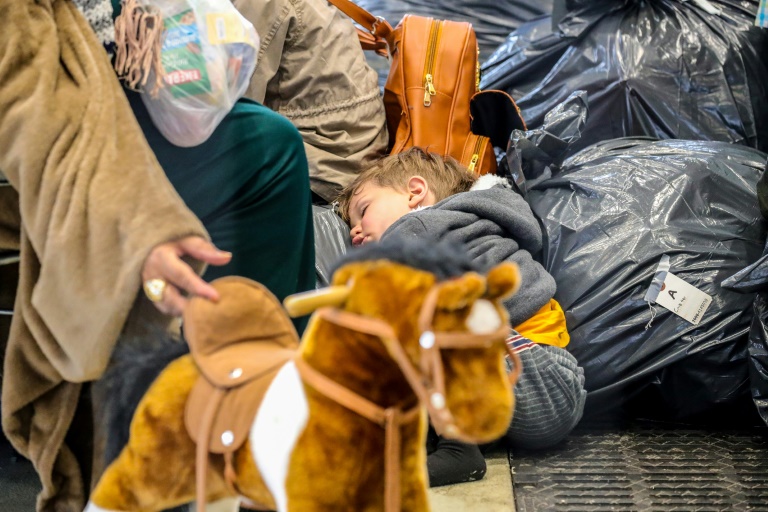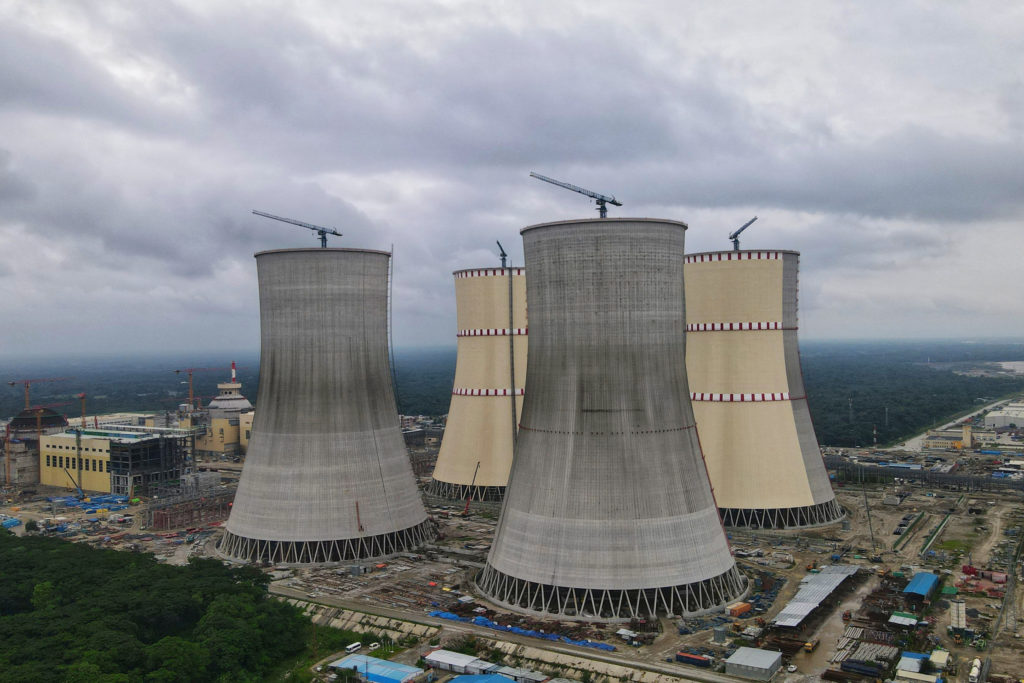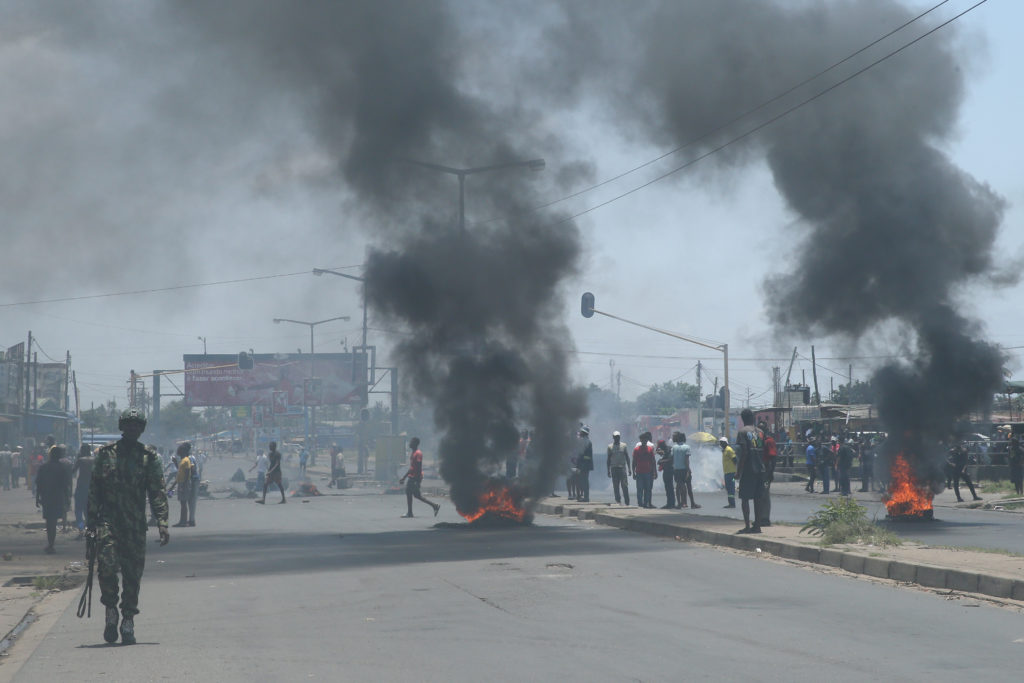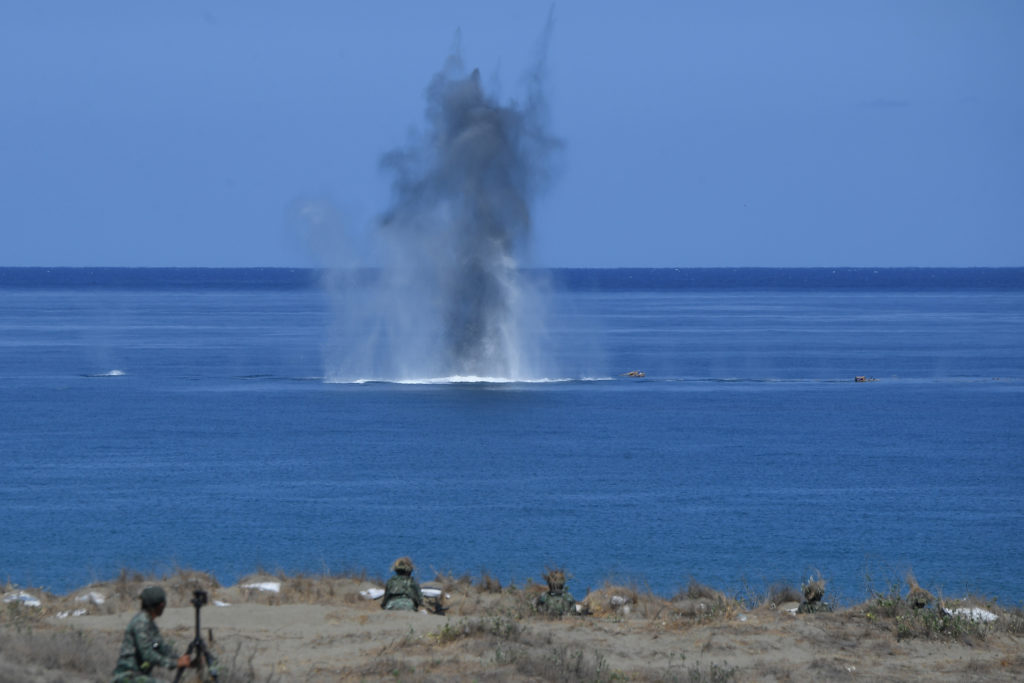Colourful washing strung on fences, children kicking a ball between hundreds of beige-coloured tents… A US army airbase in Germany has become a makeshift camp for thousands of Afghan evacuees who have made it out of their country in a harrowing journey.
Since last week, grey military planes have been landing at the Ramstein airbase in western Germany, bringing on each flight hundreds of people who have fled the return of the Taliban in Afghanistan.
At the airbase, the evacuees are given health checks and put up in tents while their paperwork is processed. If all goes well, they are then put on an onward flight, this time on a commercial liner, to the United States where a new life awaits.
From one of the holding tents for new arrivals, a boy emerges looking disoriented, while another young boy holds him by the shoulders to guide him. Officials say he is suffering from sensory overload after an overwhelming journey.
Besides the difficulty of getting past Taliban checkpoints to Kabul airport, those lucky enough to get on a plane out of the Afghan capital are first taken to Qatar or Kuwait before onward transport to Germany.
The highly perilous trip is illustrated by the twin suicide bombings that struck Kabul airport on Thursday, killing at least 85 people.
New arrivals at the base carry their baggage in their arms as they climb out of the bus that takes them from the plane to an arrivals centre.
Three women have given birth so far on the way to Ramstein. Others have arrived with gunshot wounds and broken legs, sustained in the days before they left Afghanistan, according to chief medic Simon Ritchie.
But given what they have endured, most of the arrivals appear “extremely resilient”, Ritchie says.
– ‘30,000 meals a day’ –
In all, over 340 tents have been set up, and military hangars have also been furnished to house the evacuees.
Across Ramstein and barracks in nearby Kaiserslautern, American forces have prepared space for 17,000 evacuees.
“You basically took a major operation base that focuses on European and African operations, and you turned it into an International Airport,” says Brigadier General Josh Olson, who commands the airbase.
Supplies have been flown in from across Europe to help in the effort. “We’ve had a hard time building tents” and sourcing enough food for the base, Olson says.
The call went out to the local community for help. At Die Buehne, a restaurant in the centre of Ramstein-Miesenbach, the town adjacent to the base, the kitchen has produced portions of vegetable lasagne, lentil stew and kaesespaetzle –- a German cheese and noodle dish — in their thousands.
The manager, Andreas Guhmann, received a “call for help” from the Americans last week. “It was quickly clear that nobody could do it by themselves,” Guhmann says in his restaurant kitchen, still running a normal lunchtime service.
“We never know how many people are arriving. Everyday there is a new message,” Guhmann says. “Now they need 30,000 meals a day. Breakfast, lunch and dinner.”
– ‘A safe life’ –
On the tarmac at the foot of an Atlas Air plane stand a line of Afghans. Some are wearing traditional shalwar kameez with Nike trainers, and others jeans with a blanket around their shoulders to keep warm. They’ve been waiting at the base for days. Now, they’re on their way to the US.
At an improvised departure lounge set up in a hangar, other families are waiting their turn for the planes that will take them to Dulles airport near Washington DC.
Mohammed Kassim says he had to flee because “the Taliban told me ‘I will kill you’.”
“Why? Why because my brother is in USA,” says Kassim, whose brother lives in San Diego.
Another Afghan, Rasool, 27, says he feels “excellent” because he was going to the United States where he could have a “good education and a safe life”.
With the US set to end its mission in Kabul on August 31, the evacuation effort is hitting its peak. In 12 hours on Thursday, 10,000 people arrived at the base, “the busiest day”, according to the general.
Capacity is set to be reached overnight into Friday, after which flights could be diverted to bases in Italy and Spain.
The operation at Ramstein will continue “as long as I am ordered to stay active”, base commander Olson says.
After that, the clean up will start.
“The adrenaline is going now,” he says. “But when we hit a week from now, how do we get things cleaned up and back to normal? That’s a scare.”










